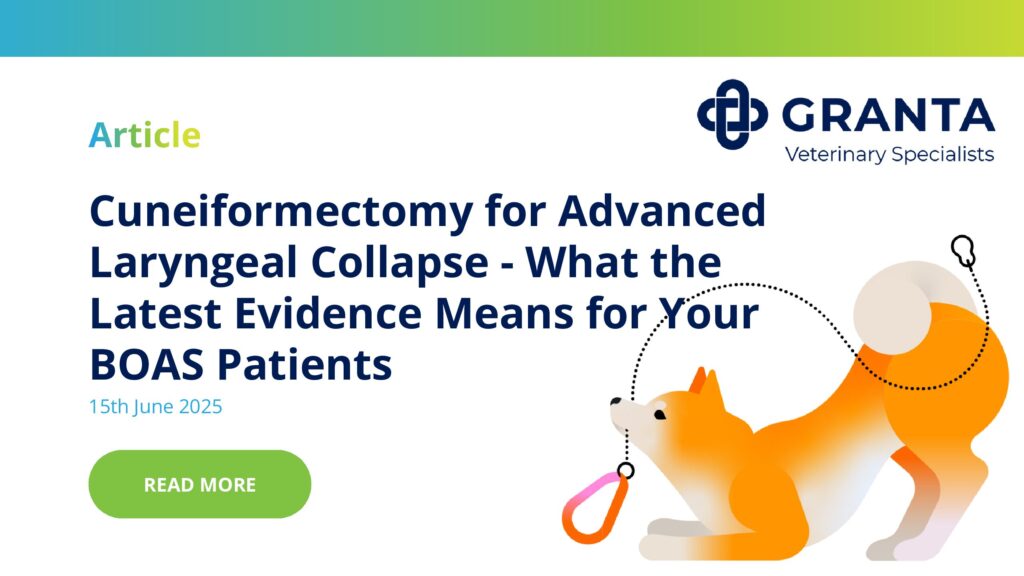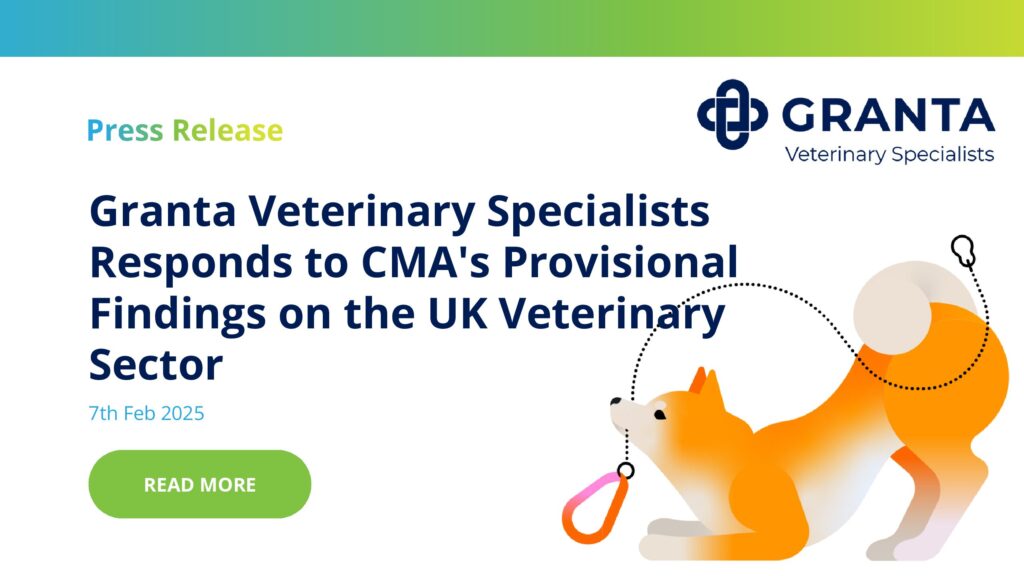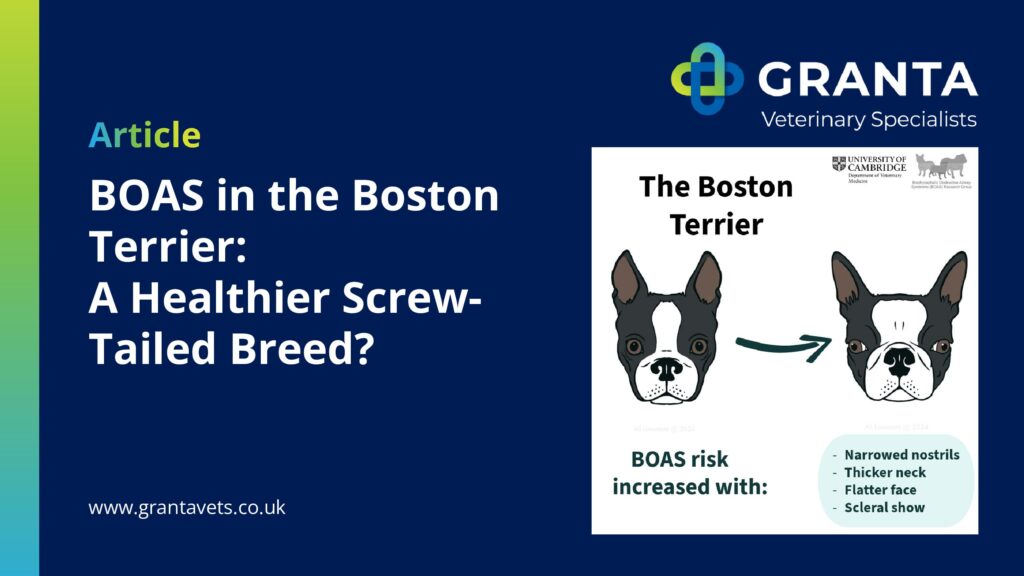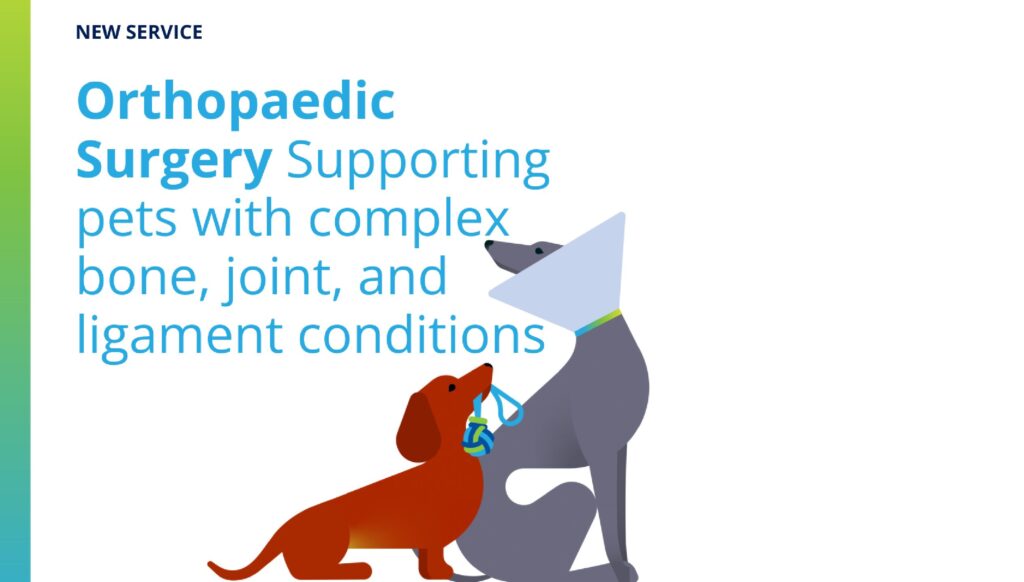A Randomised Comparison of an Adhesive Gelatin Sponge and a Plain Collagen Sponge for Haemostatic Control During Canine Liver Surgery
Tuesday October 22, 2024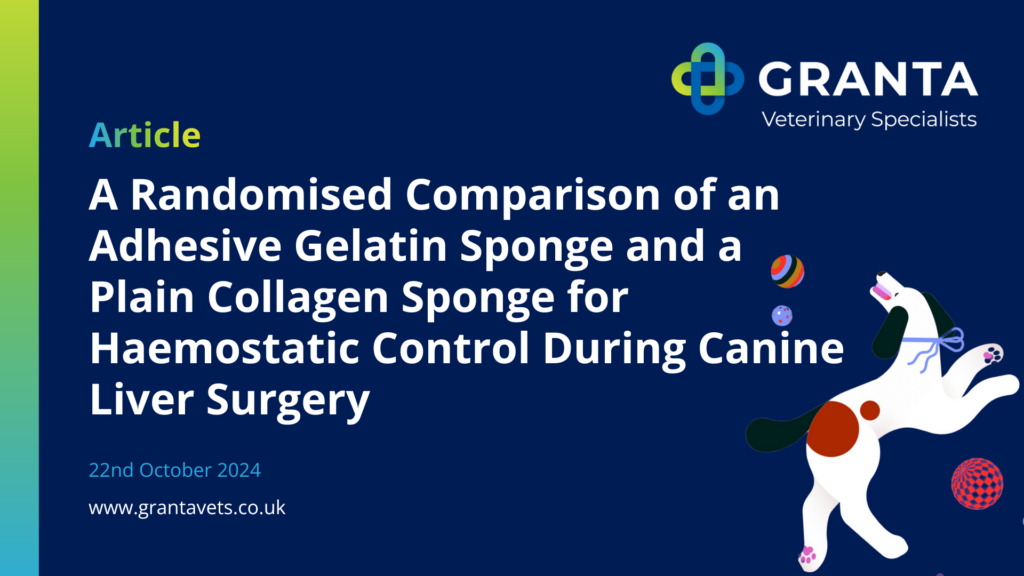
Jackie, one of our clinical partners and Soft Tissue Specialist has co-authored this recent publication in Veterinary Surgery exploring solutions for controlling haemostasis during canine liver surgery. Jackie is really grateful to her co-authors Thomas S. Anderson and Rachel D. Hattersley, for putting this paper together.
Introduction
Haemostasis is crucial during surgeries, particularly in the liver, which is highly vascular and prone to excessive bleeding. Traditional methods such as sutures and vascular clips are less effective in controlling liver bleeding so mechanical haemostatic agents like gelatin and collagen sponges are commonly used in veterinary surgery. These sponges function by promoting platelet aggregation and clot formation, creating a physical barrier to stop bleeding. However, adhesion of these sponges can be problematic , particularly bovine-derived collagen sponges, which can dislodge and lead to continued bleeding. In human surgery, adhesive haemostatic sponges are increasingly being used, but these often contain blood-derived products, which are expensive and may pose risks in veterinary applications.
This study aimed to compare a modified adhesive gelatin sponge (TenaTac) with a bovine collagen sponge (Lyostypt) for controlling bleeding during canine liver surgery. The hypothesis was that the adhesive gelatin sponge would perform better in terms of adhesion and haemostatic effectiveness.
Study Design
The study was a prospective, randomised trial involving 45 dogs undergoing elective liver surgery. The dogs were divided into two groups:
- Adhesive Gelatin (AG) group (22 dogs)
- Plain Collagen (PC) group (23 dogs)
The majority of the dogs (40) underwent liver biopsies, while a smaller number (5) had liver lobectomies. Haemostatic effectiveness and tissue adhesion were evaluated by the operating surgeon using structured scoring systems, with a focus on assessing the liver biopsy sites for consistency.
Key Methods
- Haemostatic Sponges: The AG sponge (TenaTac) was a modified porcine-derived gelatin sponge designed with small columns to increase its surface adhesion to bleeding tissue. The PC sponge (Lyostypt) was a standard bovine collagen sponge.
- Sponge Application: During surgery, the haemostatic sponge was applied to the liver’s bleeding surface, and haemostasis was evaluated at different time points (3, 4, 5, and 6 minutes). The adhesion of the sponge to the liver tissue was also assessed.
- Scoring Systems: Bleeding was scored using a visual scale (0-5), where higher scores indicated more severe bleeding. Adhesion was scored from 0 (no adhesion) to 3 (strong adhesion). Handling characteristics of the sponges were also graded based on ease of application.
Results
Haemostatic Effectiveness:
- In the liver biopsy group (40 dogs), after 5 minutes, 10 out of 20 dogs in the PC group were still bleeding, compared to only 2 out of 20 in the AG group. The AG group had significantly better haemostasis (p = 0.0138) and showed superior performance across the 3-6 minute evaluation period.
- In the entire cohort (45 dogs), the AG sponge outperformed the PC sponge in both groups, showing quicker and more effective control of bleeding.
Adhesion:
- The AG sponge scored significantly higher in tissue adhesion compared to the PC sponge. None of the AG sponges dislodged during abdominal lavage or closure, while 5 out of 23 PC sponges dislodged and had to be replaced due to recurrent bleeding (p = 0.042).
- In terms of adhesion scores, the AG sponge had a median score of 2 (on a scale of 1 to 3), whereas the PC sponge had a median score of 1.
Handling:
- There was no significant difference between the two sponges in terms of ease of handling. Both were graded similarly for pliability and ease of application.
Postoperative Outcomes:
- No adverse events, such as postoperative bleeding or allergic reactions, were noted in any of the dogs. All animals recovered uneventfully.
Discussion
The results of this study demonstrated that the adhesive gelatin sponge was significantly more effective in controlling bleeding and maintaining adhesion to liver tissue compared to the plain collagen sponge. These findings are consistent with similar studies in human surgery, where adhesive sponges have been shown to improve haemostasis and reduce the risk of postoperative bleeding due to dislodgement.
Advantages of the Adhesive Gelatin Sponge:
- Increased Adhesion: The modified surface of the AG sponge, with its small “fingers,” provided better contact with the irregular surface of the liver, reducing the likelihood of dislodgement and allowing for more effective haemostasis.
- Rapid Haemostasis: The AG sponge achieved faster control of bleeding, with 50% of cases stopping bleeding within 2 minutes, compared to nearly 5 minutes for the PC sponge.
Potential Limitations:
- Lack of a Negative Control Group: The study did not include a group that did not receive any haemostatic agent, so it is unclear whether the same results could have been achieved with pressure alone.
- Small Sample Size: While the study was sufficiently powered to detect significant differences, the relatively small sample size (45 dogs) means that further research is needed to confirm these findings in a larger population.
Conclusion
The adhesive gelatin sponge (TenaTac) was found to be more effective than the plain collagen sponge (Lyostypt) in controlling bleeding and maintaining adhesion during canine liver surgery. This makes it a promising option for use in veterinary surgery, especially in cases where tissue adhesion is critical to prevent postoperative bleeding. Given its effectiveness, ease of use, and lack of adverse effects, the AG sponge could be considered a superior alternative to traditional collagen sponges in managing liver bleeding in dogs.
The full study can be read here: https://pubmed.ncbi.nlm.nih.gov/39378152/
